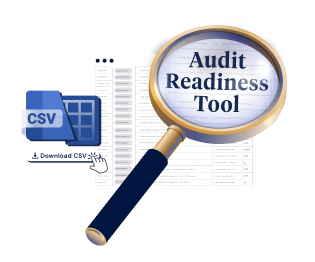More than Just a Compliance Requirement
Effective performance management is more than just an HR process. Whilst this training requirement will explain key actions in the standards that demonstrate the need for performance management, we must also recognise that supporting the workforce with performance is a key driver of workforce capability, engagement, and retention.
A strong performance management framework, not just an annual conversation checked off, ensures that staff receive regular feedback, professional development, and the support they need to adapt to evolving care environments. Performance management must go beyond compliance and annual appraisals, embedding coaching, mentoring, and ongoing capability-building strategies to sustain a resilient and high-performing workforce.
Using this Training Requirement
Performance management requirements in the NSQHS and strengthened Aged Care Quality Standards are directly linked to human resource management, risk management, and quality systems. This is to ensure that staff are equipped with the right skills, supervision, and opportunities for growth.
This Training Requirement guides the understanding and implementation of the performance management actions outlined in the NSQHS and Strengthened Aged Care Quality Standards.
Read our Training Requirement: Human Resource Management for a broader look at workforce planning, recruitment, and HR processes that underpin effective performance management.
Understanding the Relevant Actions in the Standards
NSQHS Standards:
Action 1.22 Performance Management
- Require members of the workforce to regularly take part in a review of their performance.
- Identify needs for training and development in safety and quality.
- Incorporate information on training requirements into the organisation’s training system.
National Safety and Quality Health Service (NSQHS) Standards
Strengthened Aged Care Quality Standards:
The following actions are from Standard 2: The Organisation, specifically within Action 2.9 Human resource management.
Relevant Actions 2.9 Human Resource Management
Actions in 2.8 Workforce planning
| Action | Summary of Description |
|---|---|
| 2.9.7 | The provider undertakes regular assessment, monitoring and review of the performance of aged care workers. |
| 2.9.4c | The provider maintains and implements a training system that is responsive to the
outcomes of regular aged care worker performance reviews. |

Connect staff performance with ongoing learning using Ausmed Perform™
Accountability for Performance Management
Effective performance management requires clear accountability across all levels of an organisation.
Governing Body Accountability
The governing body must ensure effective systems, processes, and reporting lines are in place to:
- Assure itself that the provider’s performance management systems are implemented and effective.
- Support broader human resource management objectives, including a workforce strategy that ensures sufficient, skilled staff to provide safe, high-quality care.
- Use performance data to monitor trends, address risks, and drive workforce improvements.
- Establishing a culture in which a safe and supported workforce can provide safe, high-quality care.
Operational Accountability
People and Culture/Human Resource Management teams, in conjunction with service and facility-level managers, are responsible for the following:
- Implementing consistent, structured performance review processes.
- Using feedback from performance management to inform training and professional development initiatives.
- Assisting the workforce in developing their competence and performance by supporting them in achieving agreed goals.
Workforce Responsibilities
The workforce play a key role by:
- Engaging in performance reviews and learning opportunities.
- Seeking supervision and support when needed.
- Providing feedback to improve workplace culture.
- Understanding organisational objectives and setting professional goals that align with these.
- Actively partnering with the organisation to accomplish both professional growth and organisational objectives.
Evidence of Compliance
Refer to detailed lists of evidence that may be audited by viewing:
- Strengthened Aged Care Quality Standards Evidence Mapping Framework (the auditor's tool)
- NSQHS Standards Action 1.22 Examples of evidence.
| Relevant Standards | Evidence Type | Description of Evidence Item |
|---|---|---|
| Strengthened Aged Care Quality Standards | Management Feedback | How do you use feedback from individuals and performance reviews to improve training? Can you give me an example? |
| How are worker performance reviews conducted and by whom? How often are reviews conducted? | ||
| Worker feedback | <Supervisor> How do you assess the competency and performance of other workers (including agency workers) to deliver care? | |
| Documents and records | Sample of worker performance reviews. | |
| Policies and processes for worker performance assessment, monitoring and reviews. | ||
| Governing body | How does the governing body assure itself that the provider’s workforce strategy, recruitment, training, supervision and workforce performance management systems are implemented and effective? | |
| NSQHS Standards | Policies | Policy documents about the performance review process for the workforce. |
| Procedure/System | Documented performance development system that meets professional development guidelines and credentialing requirements. | |
| Audit results | Audit results of the proportion of the clinical workforce with completed performance reviews, including actions taken to address identified training and development needs | |
| Documents | Mentoring or peer-review reports | |
| Worker feedback | Feedback from the workforce about their training needs. | |
| Documents | Review and evaluation reports of education and training. | |
| Meeting records | Review and evaluation reports of education and training. |

Ensure your organisation is prepared for your first audit under the strengthened Standards.
Building Workforce Capability Beyond the Annual Review
Performance monitoring and improvement, embedded in national standards and best practices, need to be continuous and proactive rather than a once-a-year conversation.
Practical strategies to build workforce capability year-round include:
- Coaching and regular supervision are needed to embed structured support into everyday work.
- Mentoring programs that pair novice (new) staff with experienced colleagues to drive professional growth.
- Leadership development to help prepare and enable staff for career progression and more decisive decision-making.
- Career conversations where meaningful discussions about growth, aspirations, and development
- can occur.
Combined with an effective performance management system linked to learning and development, these strategies improve staff engagement and care outcomes and play a crucial role in workforce retention, keeping valued staff in the sector and reducing turnover.
Relevant Resources
Explore our Guide to Ausmed’s Audit Readiness Tool for a structured approach to meeting evidence requirements.
Watch our webinar, Getting Your Training System Ready for an Audit, for a detailed look at how training, learning, and development requirements align with audit expectations.
- Strengthened Aged Care Quality Standards - Aged Care Quality and Safety Commission
- Strengthened Quality Standards Provider Guidance - Aged Care Quality and Safety Commission
- Evidence Mapping Framework - Aged Care Quality and Safety Commission
- NSQHS Standards - Australian Commission Safety and Quality Health Care
Author
Zoe Youl
Zoe Youl is a Critical Care Registered Nurse with over ten years of experience at Ausmed, currently as Head of Community. With expertise in critical care nursing, clinical governance, education and nursing professional development, she has built an in-depth understanding of the educational and regulatory needs of the Australian healthcare sector.
As the Accredited Provider Program Director (AP-PD) of the Ausmed Education Learning Centre, she maintains and applies accreditation frameworks in software and education. In 2024, Zoe lead the Ausmed Education Learning Centre to achieve Accreditation with Distinction for the fourth consecutive cycle with the American Nurses Credentialing Center’s (ANCC) Commission on Accreditation. The AELC is the only Australian provider of nursing continuing professional development to receive this prestigious recognition.
Zoe holds a Master's in Nursing Management and Leadership, and her professional interests focus on evaluating the translation of continuing professional development into practice to improve learner and healthcare consumer outcomes. From 2019-2022, Zoe provided an international perspective to the workgroup established to publish the fourth edition of Nursing Professional Development Scope & Standards of Practice. Zoe was invited to be a peer reviewer for the 6th edition of the Core Curriculum for Nursing Professional Development.



